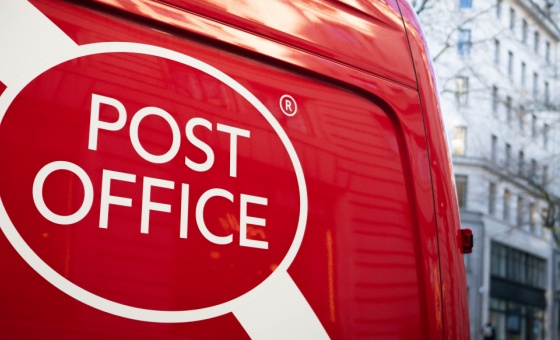This is the last article you can read this month
You can read more article this month
You can read more articles this month
Sorry your limit is up for this month
Reset on:
Please help support the Morning Star by subscribing here
THERE is a good doctorate to be written about the geography of the party conferences, a PhD on the spatial aspects of power. Particularly the physical shape of the conference beyond the conference hall — the evening receptions, the dinners, the panel meetings and fringe events.
The conferences have a slightly medieval plan. The rival king and queen arrive with their caravan, setting up camp in the important cities beyond the capital.
Petitioners from all the estates arrive to offer tribute or ask for favour. The barons get to approach the throne first, the peasants later.
On some conference sites, political and lobbying groups literally set up marquees, with fluttering banners, to encamp around the centre.
I’ve been reporting this week for the Morning Star on the Conservative Conference. But now that’s over and I’ve had a bit more time to look at the scrawls in my notebook, I thought I’d look back at the Labour conference in Brighton as well.
Each one had at least one conference hotel close to or inside a “security zone.” These are typically grand, five star hotels where the party leader stays. Typically, having a meeting in the main hotel is expensive, which indicates one kind of power.
The further away you are from the main conference hotels or halls, the less you pay. But their location also means it can be harder to get senior party members to turn up to any events.
This year big business was out in much greater force at Labour’s Brighton conference than in recent years, but had trouble connecting with team Corbyn.
The corporates put much money and time into the conference because they feel Labour is closer to power. But they struggled to get shadow ministers to talk to their events.
So the Nuclear Industry Association (NIA) — lobbyists for atomic corporations — paid the New Statesman to put on a fringe meeting.
The New Statesman meeting was housed in the British Airways i360, the rooms at the bottom of the new observation tower on Brighton Beach.
It was a short walk from the main conference hotel, and a “glamorous” location. However, the nuclear lobbyists could only get a bunch of former Labour shadow energy ministers on their panel — Caroline Flint and Lisa Nandy joined NIA boss Tom Greatrex and Paul Spence of the French nuke firm EDF.
As Greatrex is himself a former Labour shadow energy minister, the lobbyists didn’t get much closer to the actual shadow cabinet by coming to Brighton.
Worse than that for the nuke business peddlers, the general spirit of being tougher on corporations obviously infected even non-Corbyn MPs.
Breaking with the typical “We love nuclear” tone of these events, Caroline Flint was critical of the high cost of EDF’s new Hinkley Point C power station, arguing that it “may not prove to be as good value as we think” and “there will be a hit for consumers in this.”
Lisa Nandy was equally critical of Hinkley’s costs, forcing an embarrassed EDF exec Paul Spence to admit it is “the first of a kind, and the next ones will be cheaper — we know that.” Arguably it is actually the fourth of these EPR nuclear reactors, most of which are already late and over budget.
The Rail Delivery Group (RDG) — lobbyists for private rail firms — had similar problems. It held its meeting in the Hilton Brighton Metropole, one of the luxury conference hotels.
RDG was unable to attract a shadow minister to its platform, though it did manage to get the newly elected MP for Plymouth Sutton and Devonport Luke Pollard.
Pollard is no core Corbynista, but after politely listening to the RDG’s spokesperson tell Labour delegates that rail firms are trying to “make all the railways work together” and that they aren’t really a private business but a “public-private partnership” and other blandishments, something seemed to give.
Pollard ended the meeting by saying “Labour’s policy is to renationalise. This will happen if Labour gets elected. The question for the rail industry is how it should respond. Nationalisation is a hugely popular policy. What is the industry doing to prepare for that?”
Pollard added that “simply fighting a hugely popular policy is not a good idea.”
As delegates tucked into the lunch provided by the rail firms, the RDG’s spokesperson could only sheepishly admit “ultimately how rail is organised is a choice for government, and we have to work with that.”
The same lobbyists had no problem attracting ministers to equivalent Tory conference events.
Rail Minister Paul Maynard happily spoke on RDG’s panel at the Tory conference in Manchester. The NIA paid the Spectator to host a meeting with Business and Energy Secretary Greg Clark — the top minister — with “the Spectator’s own gin and tonic served to guests.”
Ministers and party delegates discussing nuclear power while half cut on the Spectator’s gin isn’t going to help get the ridiculous costs of Hinkley Point C down, but is a win for the atomic firms.
So why did these lobbyists find it hard to track down shadow ministers ? Because the geography of Labour had shifted.
Labour’s leaders were easier to find in the shabby halls of Momentum’s The World Transformed festival, mixing with rank and file Labour members, than in the posh rooms of the five star hotels with a smaller band of lobbyists and think tank wonks.
The shadow cabinet does very much want to have a conversation with the top corporations. But it doesn’t want to necessarily do it on the corporates’ terms.
The lobbyists usually want to dictate the subject and title of the meeting and the order of the speakers in return for paying for the room, the white wine and the goat’s cheese tartlets. But they would be better advised to approach the shadow cabinet without insisting on paying for dinner.









